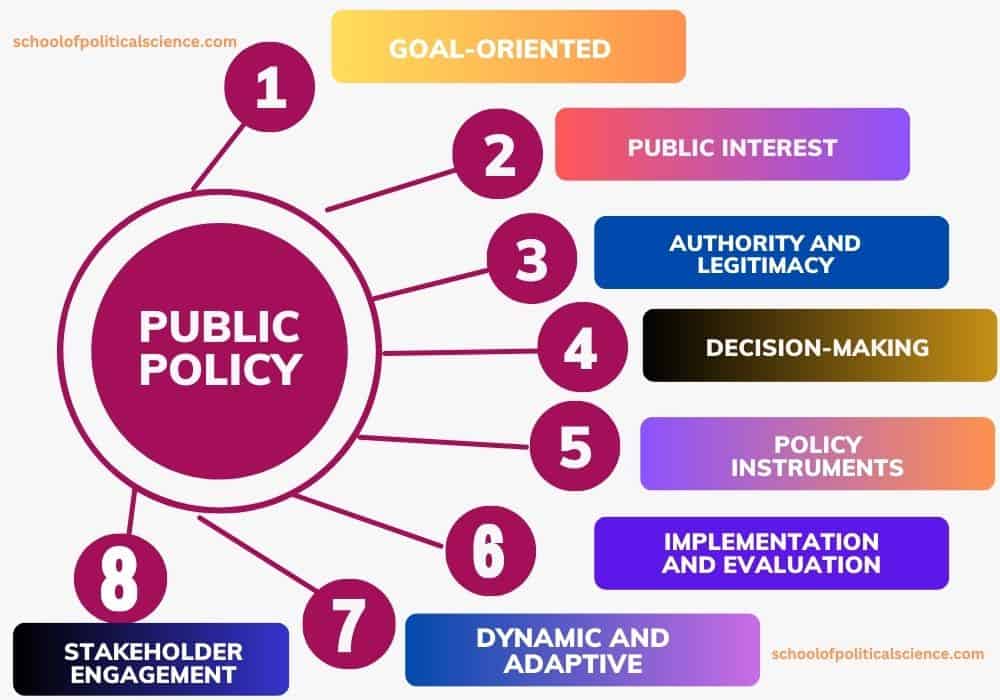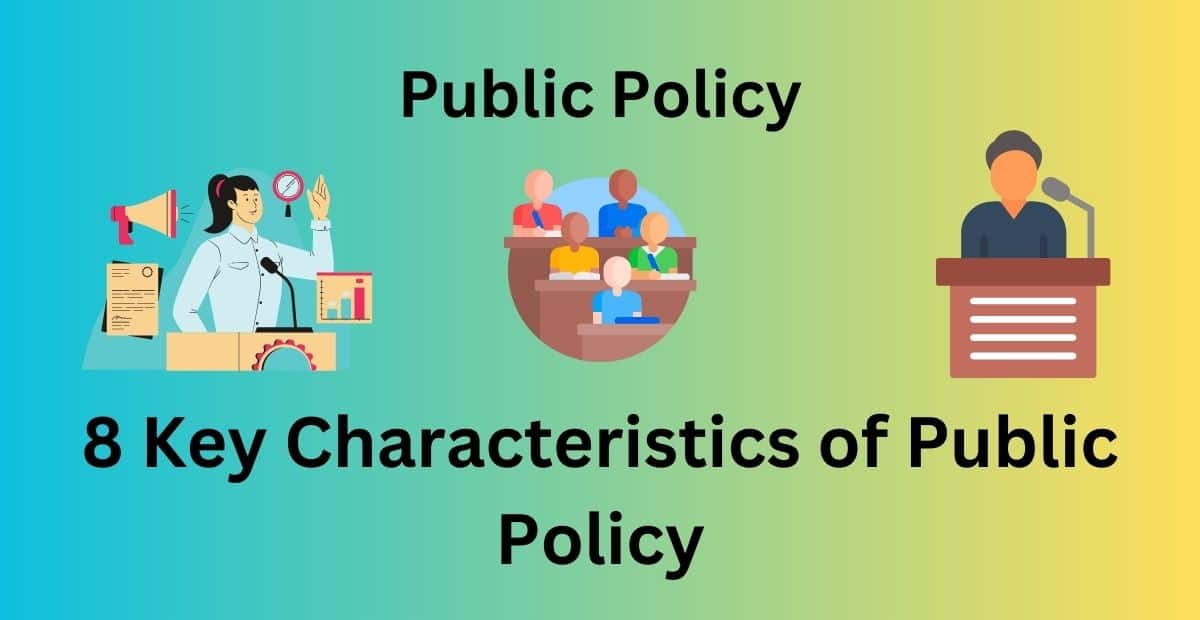Characteristics of public policy collectively define its nature and impact of public policy. The public policy enables governments to make informed decisions and create meaningful changes for the betterment of society.
Public policy plays a vital role in shaping societies and addressing complex challenges. It is goal-oriented, driven by the public interest, and formulated and implemented by legitimate authorities.
It also involves a decision-making process and uses various policy instruments. It needs effective implementation and evaluation.
It is dynamic, adaptive, and always changing to solve new problems. Involving stakeholders in the policy-making process is also important because it ensures inclusivity and accountability.
Table of Contents
Characteristics of Public Policy
Public policy possesses several key characteristics that help define its nature and impact on society. Here are some commonly recognized characteristics of public policy:
- Goal Oriented
- Public Interest
- Authority and Legitimacy
- Decision Making
- Policy Instruments
- Implementation and evaluation
- Dynamic and Adaptive
- Stake Holders engagements

Goal-oriented
Specific goals and objectives drive public policy. It aims to address societal problems, promote public welfare, and achieve desired outcomes within a given context. Policies are formulated to bring about positive changes and make a measurable impact on the targeted issues.
Public Interest
Public policy is rooted in the concept of serving the public interest. It benefits the broader society rather than specific individuals or groups. Policies are intended to address common concerns, enhance social well-being, and ensure equitable distribution of resources and opportunities.
Authority and Legitimacy
Legitimate public organizations or government agencies create and carry out public policy. It functions in accordance with the country’s laws and constitution and reflects the mandate and authority given to elected officials or appointed administrators.
Decision-Making
Public policy is created by a decision-making process. it comprises recognizing societal issues, acquiring data on those issues then selecting options, and lastly choosing the best course of action to solve the issues. Policymakers consider various factors including evidence-based research, expert opinions, stakeholder input, and political considerations to make informed decisions.
Policy Instruments
Public policy employs a range of instruments or tools to achieve its goals. These instruments are legislation, regulations, taxation, subsidies, incentives, information campaigns, and institutional arrangements. Policy instruments are chosen based on their effectiveness, feasibility, and the specific context in which they are applied.
Implementation and Evaluation
Public policy goes beyond formulation. it requires effective implementation and continuous evaluation. Policies must be translated into actionable steps. It allocates necessary resources and implements them by competent administrative bodies. Evaluation is essential to assess policy outcomes, identify areas of improvement, and inform future policy decisions.
Dynamic and Adaptive
Public policy is not static. it evolves and adapts over time in response to changing circumstances, societal needs, and emerging challenges. Policymakers continually reassess policies to consider new evidence, technological advancements, and feedback from stakeholders to ensure the policies remain relevant and practical.
Stakeholder Engagement
Public policy involves engaging various stakeholders including citizens, interest groups, businesses, and experts. Their input helps to shape policy decisions, ensure accountability, and enhance the legitimacy and effectiveness of the policy-making process.
These characteristics of public policy collectively contribute to the nature and effectiveness of public policy, enabling governments to address societal challenges, promote public welfare, and create a framework for governance and decision-making.
Must Read- The Crucial Link Between Public Policy and Administration
Conclusion
In conclusion, the characteristics of public policy shape its nature and influence its impact on societies. Specific goals drive public policy, serve the public interest, and operate within a legitimate authority framework.
It involves a decision-making process, utilizes various policy instruments, and requires effective implementation and evaluation. Public policy is dynamic and adaptive, constantly evolving to meet changing needs. Additionally, stakeholder engagement ensures inclusivity and accountability in the policy-making process.
Let me share with you what you have learned from “8 Key Characteristics of Public Policy“
Must Read– Importance of Public Policy-10 Points Need To Know

